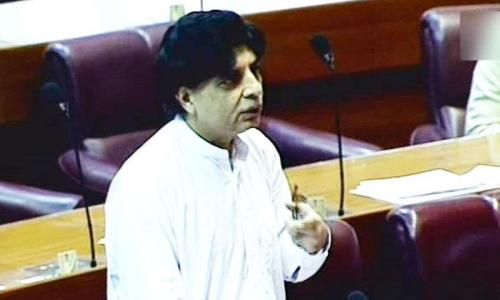ISLAMABAD: Top leadership of all three armed forces of Pakistan Wednesday reaffirmed their resolve to fight the menace of terrorism under a comprehensive strategy within the policy parameters set by the political leadership.
The Joint Chiefs of Staff Committee meeting (JCSC) was held at the Joint Staff Headquarters in Rawalpindi with General Rashad Mahmood in the chair, said a press release issued by ISPR.
The meeting was attended by Chief of Army Staff (COAS) General Raheel Sharif, Chief of Naval Staff Admiral Mohammad Asif Sandila, Chief of Air Staff Air Chief Marshal Tahir Rafique Butt, Secretary Defence, Secretary Defence Production and other senior military officers from the three services.
The meeting took place the same day when central spokesman of the Tehreek-i-Taliban Pakistan (TTP), Shahidullah Shahid accused the government of violating the month-long ceasefire by continuing with raids, arrests and torture of Taliban prisoners.
The top military officials assessed and evaluated the operational preparedness of the armed forces, said the press release.
The meeting also took into consideration the issues related to national security and emerging regional environment along with progress on the agenda points of the last meeting.
Participants expressed their satisfaction over the standard of preparedness of armed forces to take on the challenges being faced by the country.
The gathering was briefed about internal and external security threats including the situation in the tribal areas and talks with the TTP.
The ongoing peace talks between the government and Taliban struck an impasse last month after the Taliban-linked militants murdered 23 kidnapped Pakistani paramilitary soldiers.
The killings resulted in multiple targeted airstrikes by the military against suspected hideouts in the tribal northwest bordering with Afghanistan.
The Taliban then announced a one-month ceasefire which was reciprocated by the government which halted its airstrikes targeting militants and their hideouts.
The dialogue process has entered its decisive stage now with the government announcing the formation of a new committee to mediate with the Taliban's negotiating committee.















































